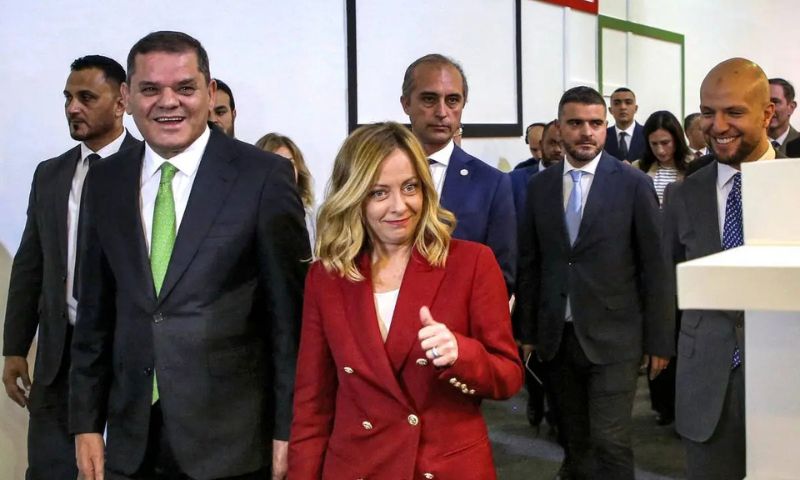TRIPOLI: Libya and Italy signed numerous agreements on Tuesday covering sectors including investments, development and infrastructure to boost cooperation between the two Mediterranean nations.
The agreements were signed during the Italian-Libyan Business Forum in Tripoli, marking the forum’s return to Libya’s capital after a decade-long hiatus.
The accords were signed by Libya’s Prime Minister Abdulhamid Dbeibah and Italy’s Prime Minister Georgia Meloni. This visit, Meloni’s fourth to Libya since taking office, highlights Italy’s interest in supporting Libya’s post-conflict recovery and economic stabilization.
“Today’s agreements open a new opportunity to support our national economy,” Dbeibah said, emphasizing plans for ITA Airways to resume flights to Libya in December and the lifting of travel restrictions for Italian businesspeople.
Dbeibah also announced the revival of the ambitious coastal highway project—a proposed 1,800-kilometer route spanning Libya from its Tunisian border in the west to the Egyptian border in the east.
According to Italian officials, the accords included measures to encourage partnerships between Libyan and Italian banks, promote collaboration between small and medium-sized enterprises, and enhance foreign investments. The two sides also signed agreements covering health, trade, and transportation, although further details on specific contracts were not disclosed.
Libya and Italy’s partnership is already substantial, with Italy serving as Libya’s largest trading partner. Official figures indicate trade between the countries exceeded €10 billion in 2022. Italy’s commitment to supporting Libya’s economic goals falls under its broader “Mattei Plan” for Africa, named after the Italian energy pioneer Enrico Mattei, who championed investment-driven partnerships in Africa during the 1950s.
Meloni has described the Mattei Plan as a “non-predatory” model of cooperation between Europe and Africa, initially valued at €5.5 billion, some of which is earmarked as loans. Investments are aimed at energy, agriculture, water, health, and education across African nations.
























